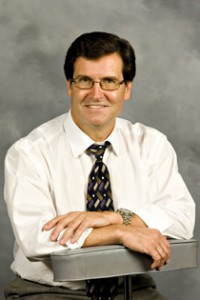
THUNDER BAY – Sergio Marchionne, the Chief Executive Officer of Chrysler and Fiat strode calmly and unassumingly wearing his trademark dark Italian sweater, into the large room at the Westin Harbour Hotel where an assembly of accountants, financial types and directors of some of the most prestigious corporations from across Canada had been meeting for one of the most comprehensive and intense 2-day session put on by the Canadian Institute of Chartered Accountants on Board Governance and responsibility of Audit Committees.
His main topic covered the fortunes of Chrysler, which only a few years ago was saved from the brink of financial disaster by government intervention that saw it accept a multi-billion dollar package that enabled the company to survive. That move saved 9,500 jobs in Canada alone, and actually saw the company prosper during one of the most difficult economic and financial crisis since the great depression.
Chrysler has now been able to repay its loan to the Canadian government thanks in part to a major reorganization of its product line, an injection of European auto technology by its now parent company Fiat SpA, and the restructuring of its operations around the globe including a new partnership with its labour unions.
Chrysler’s sales in October 2011 were the best in 9 years, easily outpacing those of its competitors.
In response to questions about the looming economic and financial crisis in Europe and possibly the rest of the world, Mr. Marchionne responded that Chrysler cost structure is now so low that it would be able to withstand a substantial reduction in sales.
His expectations are that Europe will not grow for many years due to the need to reduce its enormous debt load through austerity measures, but he also sees an opportunity for European countries to reinvent themselves and implement reforms that would allow them to free up and leverage their substantial human and technological capital, especially that of the new generation that has not been able to participate and benefit fully in the new economy.
It was his view on needed labour reform in Canada that garnered the most attention from the media in the room. In fact, due to the high Canadian dollar and other union agreements, the cost of production for Chrysler in Canada is higher than that in the USA.
Marchionne is suggesting that this issue needs to be resolved fairly soon, and that he is open for discussing anything that would bring cost parity between the two countries, or the company may be forced to move some of its production facilities to the USA.
Marchionne was optimistic about the long-term prospects of the auto sector. He believes that we are building the next leg of the recovery by re-sizing the manufacturing of North America and that the impact of operating leverage (lower cost of production and debt) for companies that have gone through a major restructuring is huge.
In fact, he believes that 2012 may be a phenomenal year if the debt issues of Europe were addressed.
Marchionne’s most insightful moments were his comments on the Occupy Wall Street movement. He believes that movement is based on a phenomenal level of discontent based on inequality.
He challenged those present to exert their influence on ensuring a new level of leadership that would lead corporations towards a paradigm shift for better equality and participation in society.
Marchionne says that a good symbolic start would be to address the growing disparity of CEOs pay in relation to the average pay of employees. It is very difficult to ask union for sacrifices when CEOs are giving themselves huge compensation packages.
Mr. Marchionne’s sincere and open discussion about current issues, and his proven track record in addressing what at the time seemed insurmountable challenges at Chrysler and Fiat, provided new insight and a breath of fresh air into new ways of thinking and approaches to solve our own current national and global issues.
In most cases, it starts at the Board of Directors level and in halls of Parliament, but a new type of leadership based on courage, integrity and transparency will be required.
Frank Pullia

Frank Pullia is the Principal of Pullia Business Consulting. He can be reached at (807) 767-6579 or via e-mail at frank@frankpullia.com







